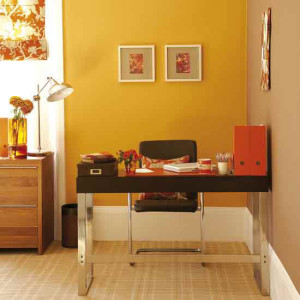 Feng Shui is not a mystical magic that has suddenly turned popular. It is an old world ancient philosophy that has been around for thousands of years.
Feng Shui is not a mystical magic that has suddenly turned popular. It is an old world ancient philosophy that has been around for thousands of years.
If you were to make a decision to seriously study this Eastern wisdom you would quickly become overwhelmed with the dimensions and applications of the teachings.
What Is Feng Shui?
The short (and I mean really short) description for the question “what is Feng Shui?” is:
Feng Shui is a way of life that is based on balance and energy.
Everyone’s energy is different and determined by the month, day, year, season and time of birth. There are times, directions and moments in your life that will be more auspicious or less auspicious based on the energy in your life and in the time frame that you are existing in.
How To Apply Feng Shui To Business
While a deep study of Feng Shui will give you many variables that can be controlled in your business, there are a few basic principles that can always be applied to business.
Any business, any one person and in any time frame will all benefit from a few basic Feng Shui principles.
You might call these the backbone of Feng Shui. If you were to apply these to your business you would influence your business success with very little effort.
ñ Always Support Your Back: This can apply to a sales presentation, a speaking engagement, an interview or just dinner in a restaurant or a conversation on the street.
When you make sure that there is a solid wall as opposed to an opening behind you or your chair, you will be more authoritative. NEVER stand, sit or talk to someone else without supporting your back.
This will increase sales, nail the interview, give you more credibility or make you the life of the party.
ñ A Mirror Is Not A Good Backdrop: Mirrors have very mixed energy and generally reflect energy back to the room or back to where it came from.
Using a mirror in your office may add value to the environment but ensure that it is NOT behind you! The mirror behind your chair, behind you when making a sales pitch or for you to be looking into during a presentation will distract both you and your listener. Mirrors should be strategically placed so that they do not disrupt your energy and replace a solid wall behind you or your clients.
ñ Never Sit In Front Of A Window Or Doorway: Again, this is a negative energy situation. It is draining energy from the room.
Your desk, presentation position or general choice of seats in all situations should never be in an exposed place.
A window or doorway is energy coming in and leaving.
Again, this falls back on keeping a solid wall behind you to increase your credibility and effectiveness.
In addition the added possibility of someone coming up behind you makes you more vulnerable. Vulnerability in business is not a good thing.
ñ Don’t Stand On A Mountain: You are likely to be thinking ‘how does this apply to business?’ There are many times when this mistake is made in business.
Think about standing on a mountaintop. You are susceptible to wind, and exposed from all sides. How would this apply to business? If you are doing a sales program in a private home or office you may be tempted to stand above the audience if there was a sunken living room or a landing on the steps. If you ever take your business outside, this happens on stages that do not have backdrops.
As you can see the first one is the most important and the next three reinforce it.
So, think about it… Have you ever violated any of the four basic Feng Shui principles in your business?
- Always support your back.
- Never do business in front of a mirror.
- Do not conduct business with an opening behind you.
- Never stand on a mountain.
All the other Feng Shui princples that use energy and the environment come secondary to these. When you take the time to ensure that you use these principles in all your affairs you will become more effective in your business.
Deb Bixler is a direct sales trainer who teaches consultants how to start home party plan businesses and achieve success working from home.